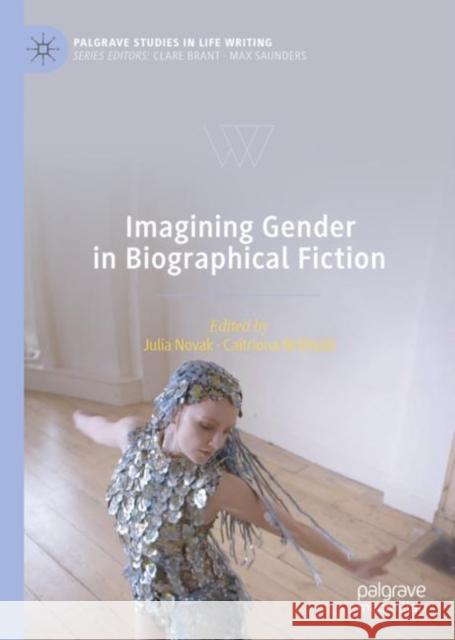Imagining Gender in Biographical Fiction » książka



Imagining Gender in Biographical Fiction
ISBN-13: 9783031090189 / Angielski / Twarda / 2022
Imagining Gender in Biographical Fiction
ISBN-13: 9783031090189 / Angielski / Twarda / 2022
(netto: 631,92 VAT: 5%)
Najniższa cena z 30 dni: 501,19
ok. 10-14 dni roboczych
Bez gwarancji dostawy przed świętami
Darmowa dostawa!
Caitríona Ní Dhúill is Professor in German at University College Cork, Ireland. She is the author of Metabiography: Reflecting on Biography (Palgrave Macmillan, 2020) and Sex in Imagined Spaces: Gender and Utopia from More to Bloch (2010). She is co-editor of the journal Austrian Studies, and guest co-editor of a double special issue of Poetics Today (2016) on negative futures. She has published numerous articles and book chapters on gender theory, utopian theory, modernist literature and life writing.
Julia Novak holds a tenure-track professorship for Anglophone Literature and Mediality at the University of Vienna. Her work on life writing and biofiction has appeared in journals such as Biography; Contemporary Women’s Writing; a/b: Auto/Biography Studies; Life Writing; and the Journal of Postcolonial Writing. She has co-edited a special issue on “Women’s Lives on Screen” for the European Journal of Life Writing (2021), of which she is an editor, as well as Experiments in Life Writing: Intersections of Auto/Biography and Fiction (Palgrave 2017); Life Writing and Celebrity (Routledge 2020); and the inaugural issue of the Journal of Historical Fictions (2017).
“This absorbing book makes a rich intervention into historical fi ction, life-writing, and feminist and queer cultural history.” —Ann Heilmann, author of Neo-Victorian Biographilia and James Miranda Barry: A Study in Transgender and Transgenre (2018)
“A fascinating exploration of the intimate interaction of gendered history and biographical fi ction [...] intelligently and incisively interrogates the deliberate use of fi ction to recentre marginalized female historical fi gures.” —Farah Mendlesohn, author of Creating Memory: Historical Fiction and the English Civil Wars (2022)
The introduction of this book is available open access under a CC BY 4.0 license at link.springer.com
Julia Novak is an Elise Richter Research Fellow (Austrian Science Fund) at the Department of English, University of Salzburg, Austria, and an editor of the European Journal of Life Writing. She has published two monographs: a book on reading groups, Gemeinsam Lesen (2007) and another titled Live Poetry: An Integrated Approach to Poetry in Performance (2011). She also co-edited the volume Experiments in Life Writing: Intersections of Auto/Biography and Fiction (Palgrave Macmillan, 2017).
Chapter 1 is available open access under a Creative Commons Attribution 4.0 International License via link.springer.com.
1997-2025 DolnySlask.com Agencja Internetowa
KrainaKsiazek.PL - Księgarnia Internetowa









